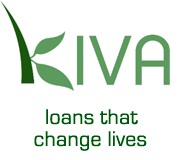[X] 10:00AM Making Money From Independent Video Content? (12AB)
Violet has built a reputation through online media, podcasting, vlogging, but she’s a writer and sexpert. She’s built a brand strong enough that advertisers are coming to her… what does this mean? This is the sort of thing that fascinates me, the sort of thing I want to do.
How long it takes to build a brand… when it’s appropriate to concentrate on content, when it’s appropriate to start thinking about monetizing. Huh. Originally I just wanted to hear Violet on a panel but now I’m wondering if this panel is actually particularly useful for me.
Nate Pagel is interesting. All these people give me a neat vibe. Is that why they’re successful in online video, and why they’re on this panel? “How do you hook up with people who want to pay you what you’re doing”, etc. Now Mike is talking about how Ze Frank has made an insane amount of money selling virtual rubber duckies… I’m the only one in her awake and excited enough to have laughed out loud because I saw that the other day… and I’m sick! Oy!
Dude! Mike Hudack works at Blip.tv, and I didn’t even notice that. I’m such a dork. I really like Blip.tv and would really like to use it…
One of the things that Violet wanted to mention was that what Indie media does is have a direct relationship with the people who are watching, because we’re publishing this media ourselves—and the rubber ducky in particular maintains that relationship in a really particular way. We’re not necessarily creating a new market, we’re recognizing the market that’s there.
It’s really difficult to tell where you change from the personal relationship to the consumer relationship – there’s no map for individuals like Violet, for what they’re doing, the only ethics she can follow is full disclosure to maintain her relationship with her viewers (or readers, or listeners).
Amanda says it’s possible to do both as long as you are holding up that connection with you and your viewers. I wonder about this, but it’s very reasonable to imagine that she’s right. It’s a fine line to walk, I bet!
Also, I think Irina Slutsky may be sitting right in front of me.
Nate is talking about being unwilling to do 30 second preroll ads; he comes from the ad / user experience world and he’s trying to come up with stuff that’s not only context appropriate, but content appropriate. An 8 second postroll ad is much more appropriate, he says, and doesn’t lead to the same negative consequences that otherwise you’ll see out there. He’s also responsible for tracking how many people are seeing the postroll ad, incidently. Do we know what the difference is in viewership between preroll and postroll? The information is out there somewhere, on the efficacy of each—Mike says that there may be about a fifty percent drop off between the two, if I heard that properly.
Bre is talking about old school TV, “This has been sponsored by…” something really relevent to the video material—in which case, a preroll might not be half bad.
What sort of systems are you guys using to work with advertisers and brands—sales team, directly with ad agencies, directly with the brands? How are they all responding to the different options? Mike says that we’re very early in Independently produced content. Brands are scared to death of using generated content. (Did I get that right?) Blip.tv takes hit shows and reps them directly to agencies, I always really wondered about this also! Blip.tv matched Dove with Amanda Congdon, etc. It’s a one-off by one-off process, finding out what brands are willing to take that risk, try things out… They closed a deal with Doers for Ze Frank because Doers wants to be perceived as on the cutting edge of this stuff—but many don’t feel that way.
Nate: The best money that can be made is a direct relationship with an advertiser. If you have a decent amount of content and it’s relevant to a certain content or audience, there’s most likely an advertiser that can match you. Contact them! That’s the way to make the most money out there. If you don’t want to do that, there are great sites that facilitate for you, sell ads for you, to allow you to concentrate on your content, etc.
Advertisers in some cases are scared to death, but if they’re looking to be perceived as hip—you can use a rate card (they know exactly what they’re getting for their money) or a fluid process, but Nate prefers the former.
Tagged as: Blog, meganculture, sxswi, sxswi07, worldhacking



